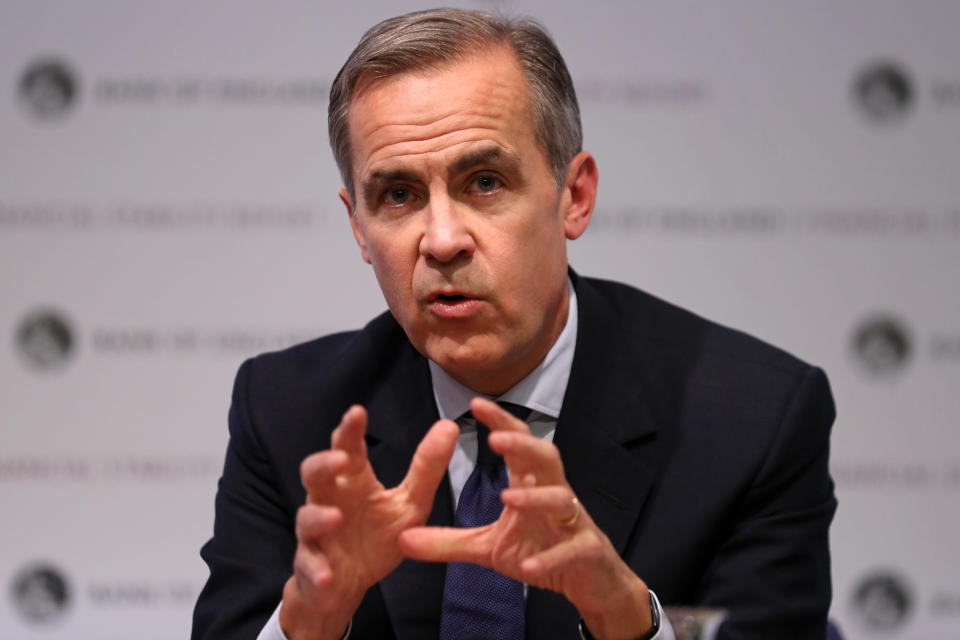Bank of England head: China's renminbi could one day rival the dollar as the world's currency

China’s renminbi (CNY=X) is likely to become a global reserve currency to rival the US dollar (DX-Y.NYB), Bank of England governor Mark Carney said on Wednesday.
“I think it is likely that we will ultimately have reserve currencies other than the USD,” Carney said in an online Q&A. “The evolution of the global financial system is currently lagging behind that of the global economy, and there are asymmetric concentrations of financial assets in advanced economies relative to economic activity.”
Reserve currencies are foreign exchange reserves held by governments or major corporations to facilitate international trade and backstop economies. The US dollar has been the most dominant reserve currency for the last century. Around half of all international trade is currently invoiced in dollars.
Data from international payment network Swift last year showed that renminbi accounted for less than 2% of international capital flows, compared to the dollar’s 40%. The euro (EURUSD=X), Japanese yen (JPY=X), and British pound (GBPEUR=X) followed the dollar in order of popularity for international payments.
Carney noted that emerging market economies now account for 60% of global economic activity, but only have a share of global assets of around 30%. The governor said this imbalance was likely to be righted over time.
“As the world re-orders, this disconnect between the real and financial is likely to reduce, and in the process other reserve currencies may emerge,” Carney wrote. “In the first instance, I would expect these will be existing national currencies, such as the RMB.
“However, history suggests these transitions will not happen overnight. The US economy overtook Britain’s in the second half of the 19th century, but it took until the 1920s before it became a dominant currency in international trade.”
Carney was skeptical about the possibility of cryptocurrencies such as bitcoin rivalling national currencies as a reserve instrument.
“While it is early days, cryptocurrencies currently are not promising even as a form of money let alone as a global currency,” he wrote.
Carney was answering questions as part of the Bank of England’s Future Forum, an online series of Q&As with bank officials about the future of money and financial policy. You can find all his answers here.

 Yahoo Finance
Yahoo Finance 